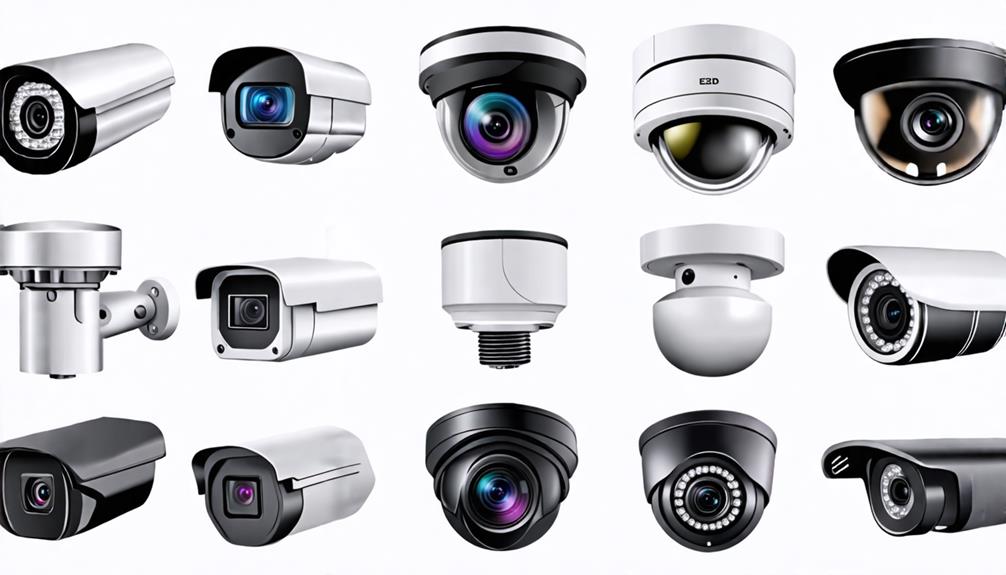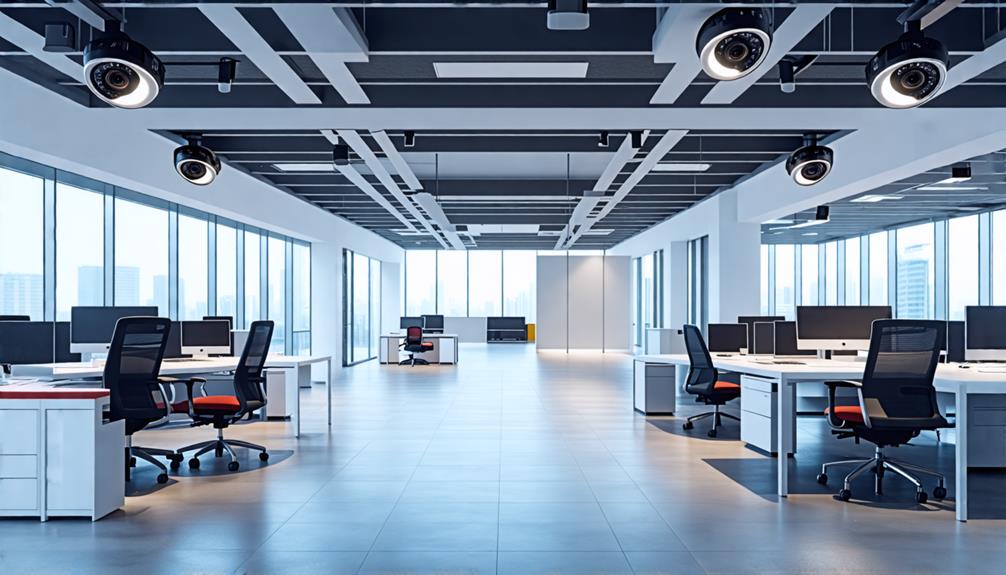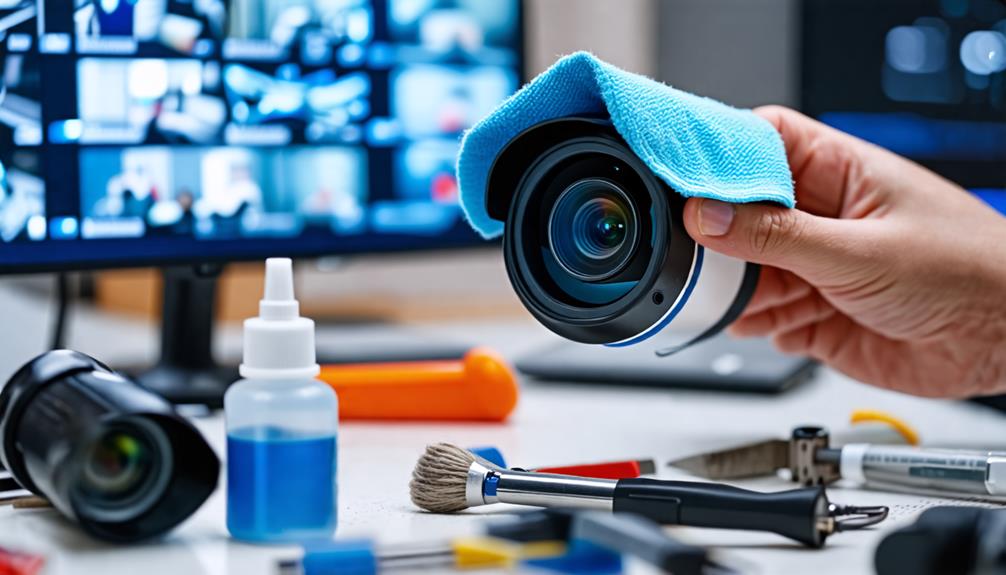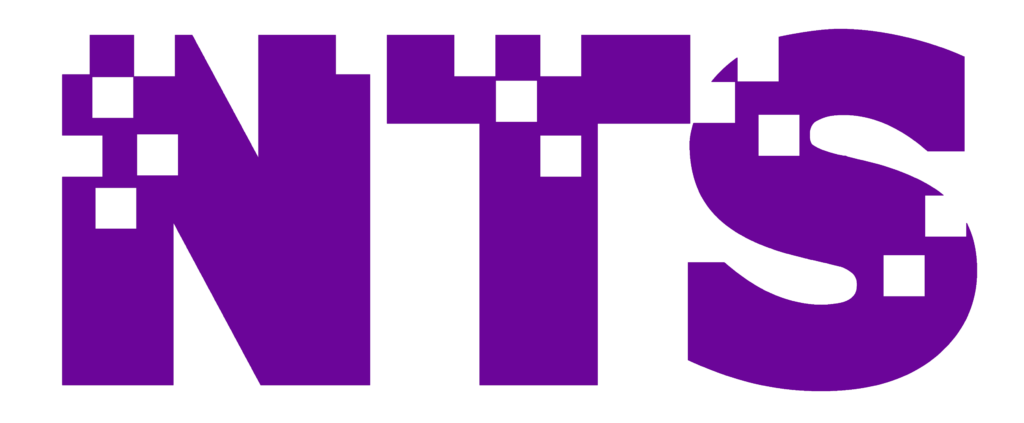If you’re thinking about keeping your business safe, CCTV cameras might be on your mind. There are so many choices, so it’s important to figure out what you really need. Are there weak spots in your current security? What things do you need to protect the most? Answering these questions will help you pick the right CCTV camera.
You’ll learn about different types, like dome cameras and IP cameras, and important features like how clear the picture is, how wide the camera can see, and if you can check it remotely. But this is just the start…
Key Takeaways
- Assess your business’s security needs by evaluating existing measures, identifying weak areas, and considering past security issues.
- Choose the right camera type based on your business needs, such as dome cameras for hidden surveillance or PTZ cameras for directional control.
- Ensure the camera’s resolution is at least 4MP for clear footage and consider features like low light performance and remote access.
- Determine your budget by calculating the number of cameras needed and comparing prices, including installation and maintenance costs.
- Consider factors like field of view, storage options, and future upgrades when selecting the right CCTV camera for your business.
Understanding Business Security Needs
When you look at your business’s security needs, start by checking what you already have and where you might need more protection. This will help you figure out where to put cameras and spot weak areas in your building.
Think about past problems like theft or trespassing to decide how many cameras you need. Look at important spots like doors, high-value items, and parking lots. The size of your building, the number of employees, and the value of your stuff will also affect your camera setup.
By knowing your business’s exact needs, you can choose the right Business Security Camera Systems. This might mean picking different types of cameras like analog, IP, wireless, dome, or PTZ cameras to watch over risky areas.
Types of CCTV Cameras Available
You have many types of CCTV cameras to choose from, and each one is good for different jobs. Knowing what each camera does best will help you pick the right one for your business.
Dome cameras are great for indoor use because they can see a wide area and are hard to spot.
Bullet cameras work well outside and can see far away, which can scare off intruders.

PTZ cameras let you control where they look and can zoom in and out, giving you flexibility.
Wireless cameras are easy to set up and don’t need a lot of wiring, but they can’t see as far.
IP cameras give you clear video, let you watch from anywhere, and have advanced features for better security.
Think about what your business needs, and pick the CCTV camera that fits those needs best. By knowing what each camera type is good at, you can make a smart choice for your business.
Key Features to Evaluate
Now that you’ve picked the right CCTV camera for your business, it’s time to look at the key features to make sure your system meets your security needs.
First, check the resolution. A minimum of 4MP resolution is good for clear and detailed footage.
Next, look at the Field of View (FOV) to make sure it covers your surveillance area well.
Low Light Performance is important too, especially with infrared technology for night vision. This helps with round-the-clock monitoring, even in the dark.
Also, think about Remote Access and Monitoring, so you can watch your cameras anytime from anywhere with internet access.
Finally, consider Storage Options like on-site DVRs, NVRs, or cloud storage to manage your footage.
Assessing Surveillance System Budget
Figure out how many cameras you need to cover your business and set a budget range. The number of cameras and features will affect the cost.
Look at different types of cameras like analog, IP, wireless, dome, and PTZ cameras. Compare their prices to get the best deal.
Don’t forget to include installation costs, maintenance fees, and storage options. These can add up quickly.
Think about long-term costs like upgrades and adding more cameras in the future.
You can find a good surveillance system without spending too much. Look for budget-friendly options with the important features you need.
Choosing the Right Camera Type
When picking a CCTV camera for your business, you need to think about what you need to watch and pick a camera that matches those needs.
Dome cameras are great for hidden watching. They cover a full 360 degrees and fit in well with your business setting.
If you need to see far away and use the camera outside, bullet cameras are best. They also help scare away intruders because they’re easy to see.
If you want to control where the camera looks, PTZ cameras are perfect. You can move them up, down, and side to side, and zoom in and out.
For easy setup and placement, wireless cameras work well, but they mightn’t cover as much area.
Camera Placement and Coverage
Place your cameras in smart spots to cover your business well. Look at entry points, important areas, and places you can’t see well. This helps make sure you don’t miss any spots.

Here are three main tips for placing cameras:
- Entrances and important areas: Put cameras where they can see doors, exits, and places with valuable stuff or important information.
- View and hidden spots: Think about what each camera can see to cover a big area and avoid hidden spots.
- Best heights and angles: Set cameras at good heights to get clear images and avoid things like glare, shadows, or obstacles.
Check your camera placement often to keep up with changes in security needs or risks. This way, your CCTV system will always be good at watching and covering everything.
Integration With Existing Systems
To make sure your security works well, connect your CCTV cameras to your current alarm and access control systems. This will create a complete and efficient security setup.
When picking a CCTV camera, check if it works with what you already have to ensure everything connects smoothly. Also, think about any legal rules to avoid problems.
You can choose to have a professional set it up or do it yourself, depending on what your business needs and what you know how to do. No matter which way you go, keep up with regular maintenance and updates to make sure everything stays in good shape.
Connecting your CCTV cameras with other security systems helps you act fast and effectively if there’s a security issue, keeping your business safe.
Compliance and Legal Requirements
Following legal rules is very important for businesses that put up CCTV cameras. If you don’t follow the rules, you might’ve to pay big fines and people might lose trust in your business. Make sure your CCTV system follows the law to stay out of trouble.
To follow the rules, do these things:
- Know industry rules: Learn about rules for your industry, like PCI DSS, which tells you how to handle credit card info caught on CCTV.
- Respect privacy laws: Place cameras in spots that respect people’s privacy. Don’t put them in private areas.
- Follow data protection laws: Teach your employees about data protection laws and how to use CCTV properly.
Check regularly to make sure you’re following the rules and keep records of how you use CCTV. Not following laws like GDPR and HIPAA can lead to big penalties.
Maintenance and Upkeep Essentials
Make sure your CCTV system follows the law, then focus on keeping it working well. Regular maintenance checks help prevent problems and make sure your cameras capture clear footage.

These checks also help your cameras last longer and avoid expensive repairs. Here are some things to do to keep your system in good shape:
- Clean lenses and camera covers: Once a month
- Update firmware and software: Every three months
- Get professional servicing and calibration: Twice a year
- Check for obstructions and clear views: Every day
Frequently Asked Questions
How to Choose the Right CCTV Camera?
Choose a CCTV camera by looking at resolution, field of view, low-light performance, and remote access. This ensures clear footage and good coverage for your business.
What Is the Best CCTV for Business?
The best CCTV for business depends on your needs. Use IP cameras for clear video, dome cameras for wide views, or PTZ cameras for remote control.
How to Choose a Video Surveillance System for Your Business?
Choose the right video surveillance system by checking your business needs, like camera type, resolution, storage, and remote monitoring. This ensures good security and easy access to footage.
How to Choose the Best Surveillance Camera?
Pick a camera with at least 4MP resolution for clear images. Check its field of view, low-light performance, and if you can access it remotely for reliable surveillance.
Conclusion
Choosing the right CCTV camera is essential for ensuring your business’s security. Consider your surveillance needs, evaluate key features, and factor in camera placement, system integration, and legal compliance.
Prioritize resolution, field of view, low light performance, and remote access, while determining your budget.
To simplify the process, partner with a trusted provider like Nye Technical Services. The experts at nyetechnicalservices.com can help you select the ideal CCTV solution for your business.




